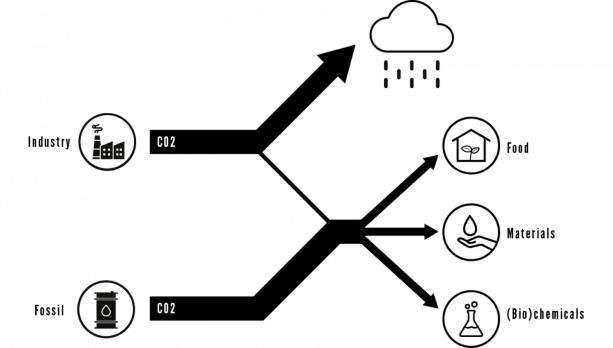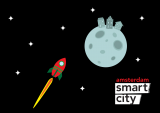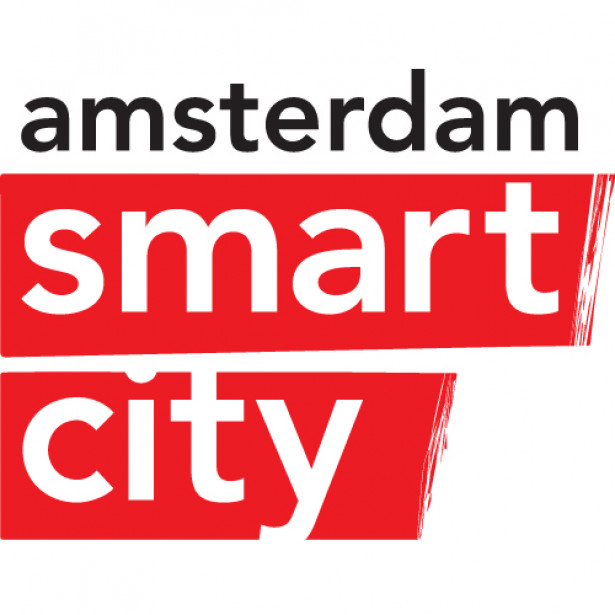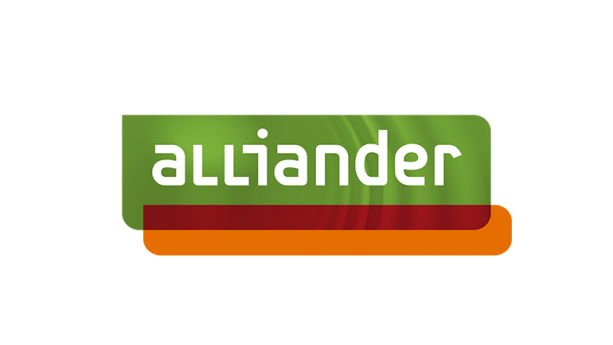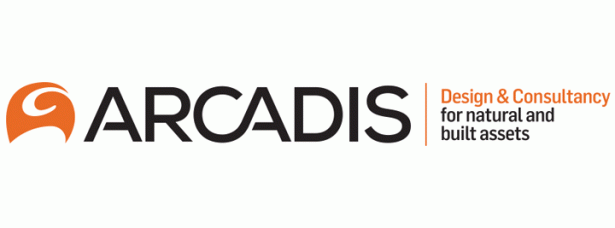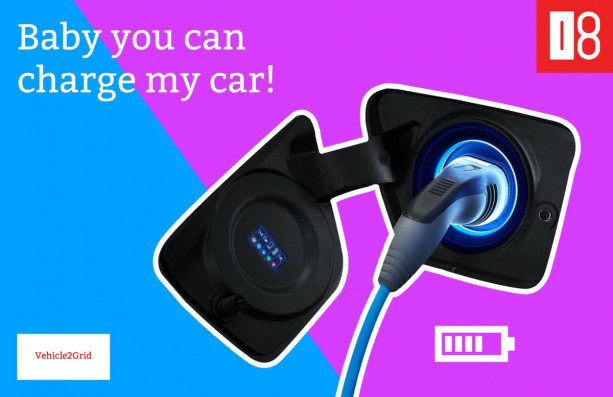Stay in the know on all smart updates of your favorite topics.
Sustainable energy is the future. The city of Amsterdam has the ambition to provide every citizen with a solar panel in the next years. How do you contribute? Share your innovative initiatives on energy here.
Capturing the societal value of smart energy systems
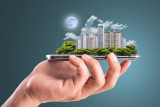
Addressing key moral considerations of smart energy systems that are relevant for both now and in the future.
Energy transition Amsterdam
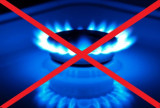
Finding out how students can be used to inform the citizens of Amsterdam about the energy transition.
CO2 Smart Grid
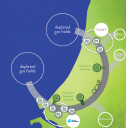
How will we provide food to growing cities with a shrinking amount of agricultural land? How can we provide enough fresh water for everyone? Just as relevant: how should we make the transfer to a safe, clean and reliable energy supply?
How will we provide food to growing cities with a shrinking amount of agricultural land? How can we provide enough fresh water for everyone? Just as relevant: how should we make the transfer to a safe, clean and reliable energy supply?
The large amount of CO2 put into the atmosphere because of human activity causes climate change, threatening our quality of life and security and that of future generations. This has been acknowledged by (inter)national governments – for instance at the COP21 in Paris in 2015 -; They pledge large emission reductions. In the Netherlands, we aim for a reduction of 85-95 percent by the year 2050.
So, we have to reduce CO2 by expansive measures, and everyone should feel the responsibility to work on this challenge as effectively as possible. However, perceiving this issue as only a problem, by incrementally reducing CO2, will not lead to a satisfying end result. We should instead approach this as a huge opportunity for the Dutch economy. Our statement?
CO2 IS NOT ONLY A POTENTIALLY DANGEROUS WASTE MATERIAL, IT IS ALSO A IMPORTANT ASSET FOR THE CIRCULAR ECONOMY.
What is the situation?
CO2 is a raw material in for instance the horticulture and the chemical industry. This is a business case with growth potential.
What do we want to do?
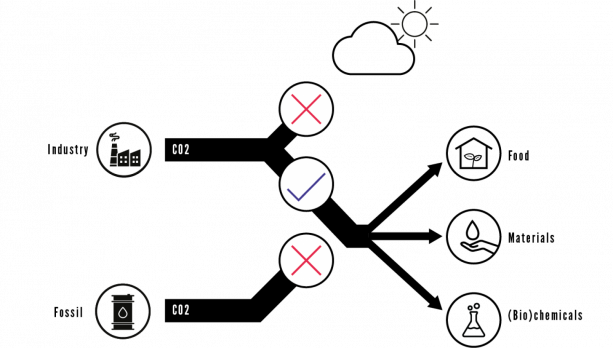
Use CO2 in a smart way so we can reduce the use of raw materials of fossil origin.
City-zen: Vehicle2Grid

Vehicle2Grid technology stands for the possibility to use the battery of an electric vehicle to charge at times when there is congestion in the grid and to feed the electricity back to the grid at a later stage.
City-zen was an international consortium, a program stimulating learning-by-doing in Grenoble and Amsterdam between March 2014 and November 2019. The results can be found in a booklet or in detailed reports. http://www.cityzen-smartcity.eu/home/reporting/deliverables/
Smart Stories
Check the article about Vehicle to Grid featured in our online magazine 'Smart Stories':
City-zen: Dispatch and trading tool in Port of Amsterdam
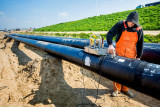
Renewable energy supply – such as solar and wind power – is growing and the energy supply coming from gas fired power plants is decreasing.
City-zen was an international consortium, a program stimulating learning-by-doing in Grenoble and Amsterdam between March 2014 and November 2019. The results can be found in a booklet or in detailed reports. http://www.cityzen-smartcity.eu/home/reporting/deliverables/
City-zen: Neighbourhood bio refinery
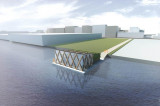
Waternet will implement a neighbourhood bio refinery, a small scale treatment unit in which raw materials and energy can be recovered from black waste water.
City-zen was an international consortium, a program stimulating learning-by-doing in Grenoble and Amsterdam between March 2014 and November 2019. The results can be found in a booklet or in detailed reports. http://www.cityzen-smartcity.eu/home/reporting/deliverables/
Organizing the Circular City
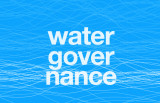
Performing action-oriented research into (water) governance in relation to new water technology, including decentralised water initiatives.
Floating Solar Challenge Amsterdam Science Park
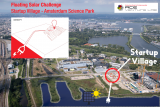
Help building a floating solar energy plant in Amsterdam
AMS institute: Circular City research programme

To establish healthy and regenerative resource flows that retain or increase value in cities’ subsystems, there is dire need for new concepts as well as rigorous and critical testing of existing ones: both at an academic and practical level.
Introduction
To establish healthy and regenerative resource flows that retain or increase value in cities’ subsystems, there is dire need for new concepts as well as rigorous and critical testing of existing ones: both at an academic and practical level. This relates to e.g. aligning & connecting flows, exploring shared value models, implementing smart sensing technologies, identifying displacement effects etc. The impact on how cities are conceived, materialized and operationalized in a circular framework can hardly be overstated. Some impacts can be imagined, based on current knowledge, but most can at best be anticipated. This is due to cities being complex, adaptive systems. This notion resonates in the AMS institute Circular City research program through the three subthemes: materials & buildings, nutrients recovery from wastewater, and urban energy systems.
Each subtheme has its own research priorities, determined by the interplay between city, society and science. Furthermore, the three themes comprise multiple interrelations and synergetic potential. Think for example of the role that wastewater can play in thermal energy supply or the circulation of building blocks for plastics and other materials. Or how local nutrient recovery systems inform building design and neighbourhood development. Other examples are e.g. ‘embodied’ water and material use required for the energy transition we are facing, and rebound effects that may occur when such an energy transition leads to lower energy bills.
Subtheme 1: materials & buildings
Resource depletion and waste generation are two phenomena that, due to their nonregenerative and polluting character, hinder healthy and sustainable development of urban environments. A shift from linear to circular resource management offers a potential solution, but requires new production and consumption models. Not least with regard to buildings and infrastructures. The main focus of this theme is on materials that are temporarily stored in built constructions for diverging – medium/long – periods of
time, but also short cycle materials, such as solid waste flows, are part of the scope.
Three scale levels are distinguished with regard to aligning flows & stocks: building,
neighbourhood, and region. The value cases associated with this theme revolve around: enhanced data-driven urban systems thinking that enable effective regenerative material flows, adding value to public or private organizations and society at large. Breakthrough innovations are linked to evidence based analytical and forecasting tools to determine optimal material (re-) circulation on the one hand, and matching value-bydesign with new business models on the other.
AMS projects e.g.: PUMA, Adaptive Circular Cities, REPAiR
Subtheme 2: nutrients recovery
Decentralised sanitation systems can play an important role in circular cities, with regard to resilient and cost effective wastewater treatment systems, while valorising the wastewater flow through: recovery of phosphates and other nutrients, biogas production, clean water, etc. Furthermore, those systems have the potential to reduce CO2 emissions and improve urban quality as perceived by the community. However, assessing this potential requires further study, monitoring and practical experience. Moreover, different solutions on various scale levels need to be taken into account from a circular perspective, such as the opportunities of end-of-pipe propositions. Value cases associated with this theme revolve around integrated wastewater treatment concepts for urban neighbourhoods, including its impact on local crop production and community building, and large-scale valorisation of wastewater through the production of algae.
Living lab focus areas: Buiksloterham, Floriade (Almere)
Subtheme 3: urban energy systems
Renewable energy systems are becoming increasingly important, not least in urban
environments, which offer specific opportunities, challenges, and limitations, dictated by their local urban context. The transition to renewable energy sources thus require
smarter energy infrastructures that are able to deal with increased variability in
consumption, storage and production at multiple scales and concerning multiple energy products and services. This theme focuses on innovation in energy systems engineering & integration, energy storage, and ICT, whilst adopting a citizen perspective. Value cases are based on: less dependency on fossil fuels, resilient adaptive systems, and meeting the changing needs of urban living. Traditionally, the energy system is organised in a top-down fashion, with a limited number of major players. Decentralized energy generation gives a need for reconsideration of such a hierarchical approach. Breakthroughs are sought in deep customisation of so called micro-grids, based on local supply & demand characteristics of the urban neighbourhoods and its energy users.
AMS projects e.g.: DC Smart, URSES, BIES
Main Research Infrastructure/Living Labs in Amsterdam:
Buiksloterham, Amsterdam Zuid-Oost, ArenA, Haarlemmermeer, and Floriade Almere.
For more information visite the AMS Institute website.
Smart Urban Isle

The Smart Urban Isle (SUI) project pretends to move forward with the urban energy savings.
The Smart Urban Isle (SUI) project pretends to move forward with the urban energy savings. Based on a three cornerstones procedure, the SUI project aims at a whole new urban planning that allows cities to grow in a sustainable way. Consequently, we develop an innovative new concept for city planning, where cities are arranged and grow through small integrated areas. We will probe Smart Urban Isle as innovative basic energy unit in the Smart City.
Peakshaving at Blijburg

Sustainable & Cost Effective
Biogasboot

Biodigesting a way into a sustainable future
EnergieKoplopers

How can flexible strategies help grow sustainable energy and keep the electricity grid reliable at the lowest possible cost, while also revealing potential benefits for households?
High-speed, future-proof district heating Hengelo
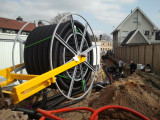
High-speed, future-proof district heating Hengelo
Check out the project video below: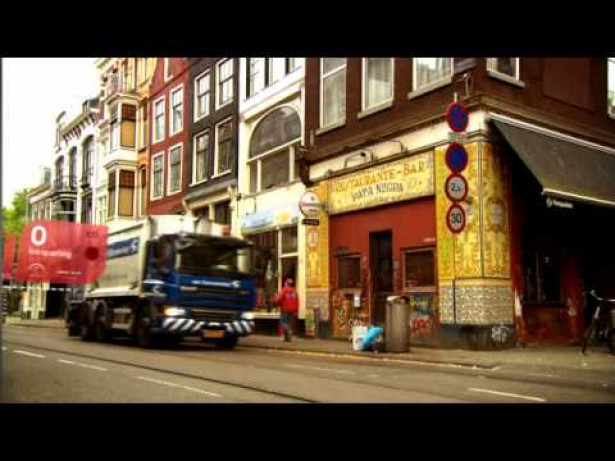
GridFriends at Schoonschip

An intelligent grid for clean and shared distribution of energy
Sustainable symbiosis between Art and Greenhouse

Sustainable symbiosis between Art and Greenhouse
For more information (in Dutch only):
or:
https://www.allianderdgo.nl/nl/case/duurzame-symbiose-tussen-kunst-en-kas-2
Duurzaamheidsfonds Amsterdam
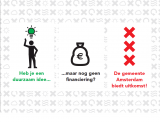
Matching great ideas with cheap loans
Stay up to date
Get notified about new updates, opportunities or events that match your interests.
